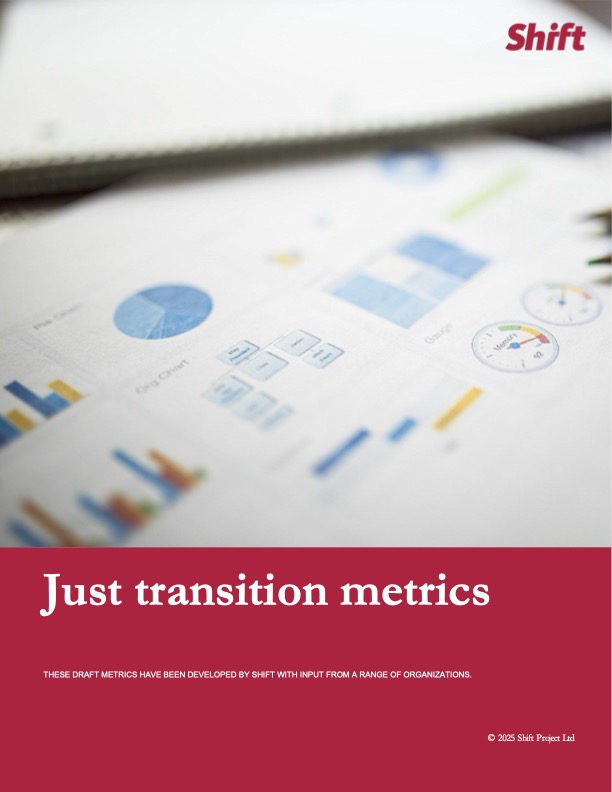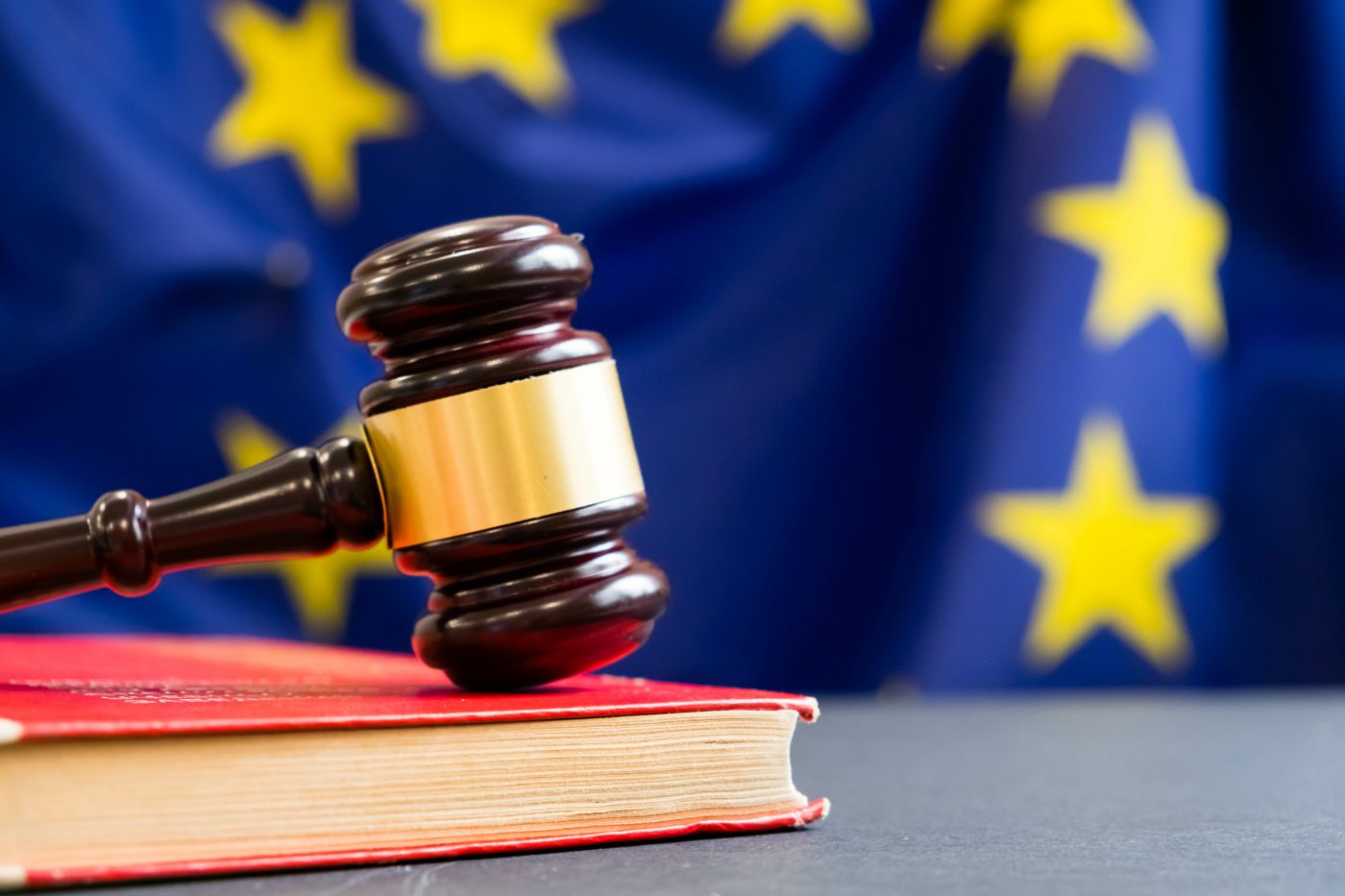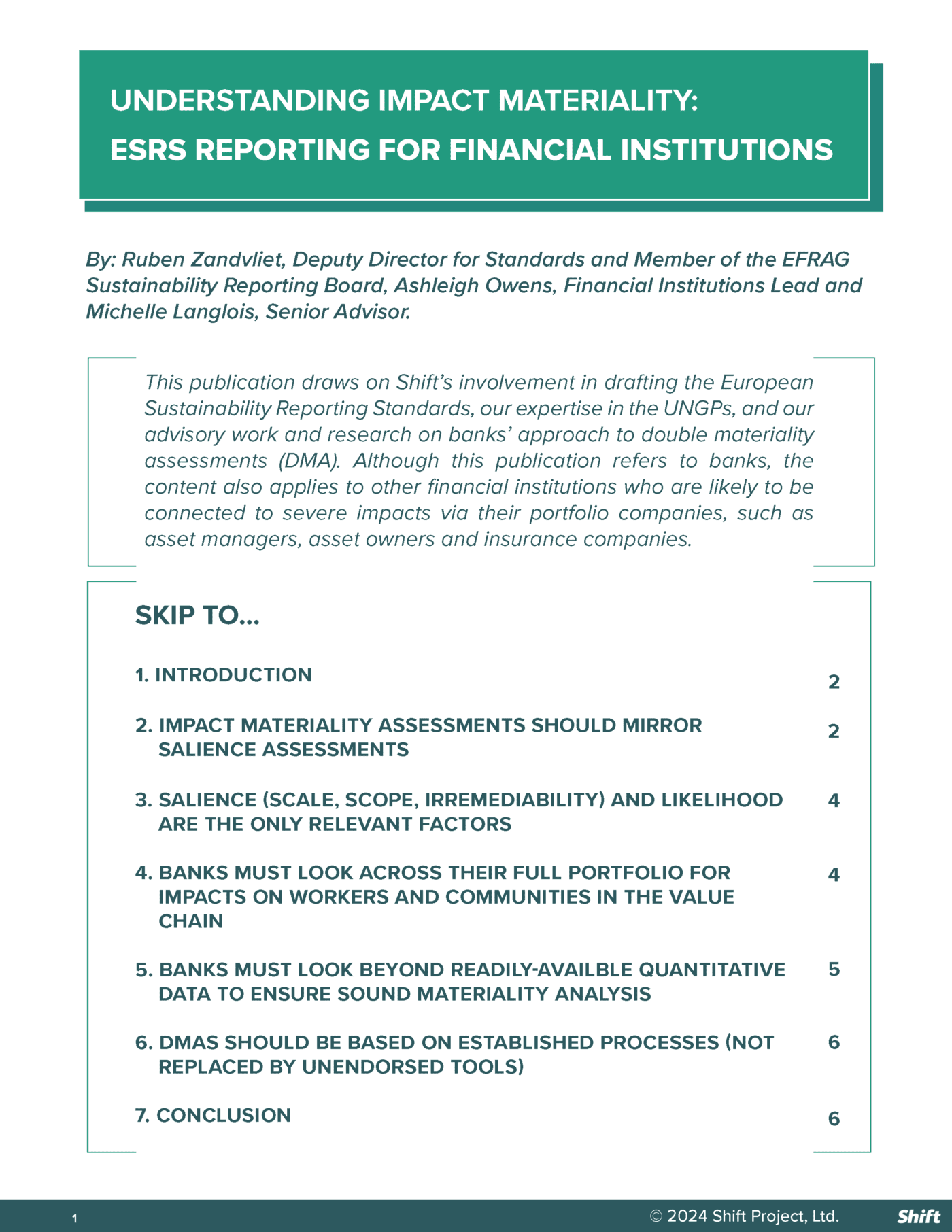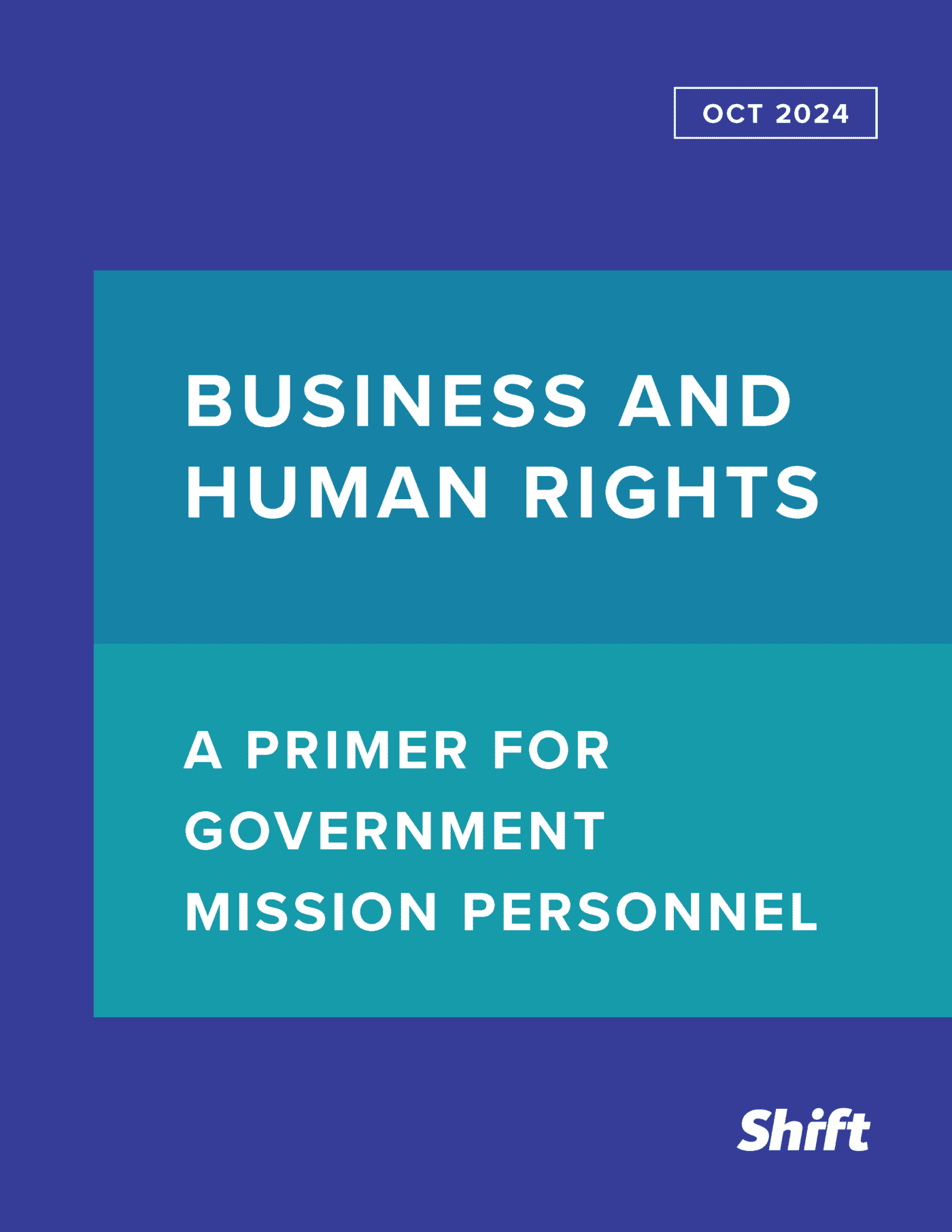Last week, the European Parliament adopted a new directive – or law – under which around 6,000 companies will have to report publicly on how they manage the environmental, social and human rights risks associated with their operations. Specifically, they will have to report on the relevant policies they have in place and those policies’ outcomes, the principal associated risks and how they are managed, including through due diligence processes. The 6,000 companies affected by the law include large European and non-European companies listed within the EU, as well as credit institutions and insurance companies.
The passage of this law represents the culmination of hard work by many civil society organisations, investors and others – but by no-one more than Richard Howitt, MEP, who began a long and often arduous campaign for a non-financial reporting law back in 1999, and did so much to bring it to fruition.
In the final stages of negotiations on the law, Shift and many others – such as the NGO coalition ECCJ and the investor grouping Eurosif – sought to shape its content. For many of us, a key concern was that it should reflect the content of the UN Guiding Principles on Business and Human Rights. Since their endorsement in 2011, the Guiding Principles have set the global standard regarding the corporate responsibility to respect human rights.
The final text of the law reflects a number of the central concepts in the Guiding Principles – indeed, not just in relation to human rights, but across the areas of environmental and social reporting as well. These include:
- the need to focus on risks to society, not risks to the company;
- the need to accord priority to the most severe impacts – both potential and actual;
- the need to look not just at the company’s immediate activities but also how impacts might be linked to its operations, products and services through its business relationships, including its supply chains; and
- the importance of a taking a risk management systems approach to addressing these issues, including the importance of implementing due diligence processes.
The law also references the Guiding Principles as an international framework that companies may rely on in providing the necessary information.
Inevitably, given the nature of such negotiations and the interests involved, the final text of the law falls short of our and others’ ambitions in a number of regards. However, now is not the time to pore over those flaws, but rather to focus on its strengths, and capitalise on the opportunities as we look towards its implementation.
The opportunities the law offers are many.
For reporting companies, it should increase awareness and discussion of human rights issues among senior management and Boards of Directors. As the process of gathering information for reports advances, this should improve the quality of internal conversations, sharpen analysis of problems and in turn improve practices. And the level playing field for reporting should then enable the strongest performers to reap benefits with shareholders, financers, customers and others.
For governments, the law – and its necessary conversion into domestic legislation – should reduce or remove tensions between their human rights law obligations and corporate law interpretations that have favored shareholder value over all other considerations. In short, the kind of “policy coherence” that the Guiding Principles press for becomes much easier in at least this regard. And this in turn should ease the way for governments to become champions of a race to the top – not just in what companies say, but also in what they do with regard to human rights.
For investors and other stakeholders in corporate conduct, there is an opportunity to gain far more meaningful insights than previously into what companies are doing to address human rights risks. This can supplement more ad hoc information from events that make it into the media or organisations’ campaigning choices. It should enable better targeting of both criticism and pressure on the one hand but also encouragement and recognition on the other – thus strengthening the incentives for good performance. And while there will always be limits on public reporting (not least ones of page length) the information provided should offer a starting point for pursuing more meaningful and detailed exchanges with companies in a host of different contexts.
These are just some of the opportunities ready to be reaped if implementation of this law achieves its potential.
But they will be missed if implementation becomes an exercise in letting a thousand (or 6,000) flowers bloom. Diversity is the enemy of progress in this regard. Let me explain.
That the law’s provisions reflect and further reinforce key aspects of the Guiding Principles is to be welcomed. But this law, inevitably, remains at a level of generality; its provisions are broad categories within which much more focused decisions have to be made on what exactly a company reports.
And therein lies the risk: absent clear and thoughtful supporting guidance, it is quite possible that the human rights reporting of many companies will continue to reflect what is easiest, rather than most meaningful, to report: success stories, pet projects, and least contentious issues. Each company could interpret the law in a manner that most closely fits its current practices, rather than adapting its practices to meet the underlying expectations of the legislation.
How do we avoid this outcome? Clearly, a reporting straitjacket is not the answer – one size does not fit all. But total free rein brings equal and opposite risks.
Governments have a critical role to play as they put the directive into domestic law provisions and develop supporting guidance. Indeed the directive itself asks the European Commission to produce guidance for companies within two years. Much therefore rests on getting such guidance right. But what is “right” in these uncharted waters?
This is a question that Shift has been addressing through its facilitation of a multistakeholder consultative process, together with the auditing and assurance firm Mazars and the Human Rights Resource Centre for ASEAN. The Reporting and Assurance Frameworks Initiative (RAFI), launched in mid-2013, aims to develop a twin set of frameworks: one to give guidance on what good reporting on human rights looks like; and the other to give guidance on what good assurance of such reporting looks like.
The initiative is based on a process of broad and deep consultations across all stakeholder groups – business, civil society, government, investors, assurance providers and others. Its outputs and updates are all publicly available. It is supported by the UN Working Group on Business and Human Rights and benefits from a formal collaboration with the Global Reporting Initiative – which provides the leading reporting framework for non-financial issues more broadly.
RAFI will begin consultations on the potential structure and content of the human rights reporting framework later this month. Under current plans at least one company pilot of that framework will begin this year, with more pilots next year as both the reporting and assurance frameworks move to completion by the end of 2015. The final frameworks should be owned by one or more independent organisations, be freely available to all, and be capable of evolving further over time.
The adoption of the EU law on non-financial reporting is a potentially pivotal moment for the advancement of responsible business conduct, particularly with regard to human rights. Whether the opportunities the law represents can be realised now depends in large part on the development of clear guidance to ensure its proper interpretation and application. Over the coming months, and with the engagement of all those involved in the consultations, RAFI should help show what such guidance might look like.
 By Caroline Rees
By Caroline Rees



